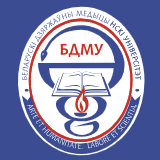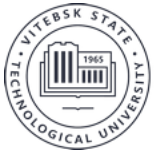Introduction
International Sakharov Environmental University is the top university in Belarus in the field of environmental education and an important base for environmental education in the CIS countries. It mainly cultivates talents in environmental-related majors and is committed to promoting the development of harmonious relations between humans and nature.
Overview
Student size: The school has more than 2,000 students studying here, including full-time students, correspondence students, graduate students, etc., in addition to 254 foreign citizens from 16 countries.
Number of teachers: There are 222 lecturers, including 15 professors, 22 doctors of science, 109 doctors and 86 associate professors.
History and establishment time
In May 1991, within the framework of the United Nations international cooperation on Chernobyl, M. Liutsko, associate professor of the Department of Nuclear Physics of the Belarusian State University, proposed a project to establish the International Sakharov School of Radioecology. The school was established in 1992 by decree of the Council of Ministers, reorganized into the International Sakharov Institute of Radioecology in 1994, and reorganized into the International Sakharov Institute of Radioecology in 1999. It obtained its current name and status in 2013.
School Strength
Faculty: The school has a strong faculty with high professional quality. Most of the teachers have profound attainments in their professional fields. For example, the 222 lecturers include professionals with different titles such as professors, doctors of science, doctors and associate professors, who can provide students with high-quality teaching and guidance.
Scientific Research Achievements: Actively carry out various scientific research projects and undertake a number of international cooperation projects, such as Tempus HS (2012-2015) and Tempus Eco Bru (2013-2015), which aim to cultivate professionals in the field of environmental safety and develop related academic courses, and promote academic development and technological innovation in the field of environmental science.
International Cooperation: The school has signed cooperation agreements with more than 60 domestic and foreign training and research centers to carry out joint international projects, student and academic staff exchanges, international seminars and conferences and other activities , and cooperates with the International Atomic Energy Agency to hold regional graduate education courses on radiation protection and radiation source safety for representatives of the CIS, Central and Eastern European countries every year.
Institutional nature
Public university.
Educational philosophy
Adhering to the concept of harmonious coexistence between man and nature, focusing on cultivating students' understanding and practical ability of sustainable development, emphasizing the integration of environmental education into various disciplines, and through interdisciplinary teaching methods, enabling students to have the ability to comprehensively use multidisciplinary knowledge to solve environmental problems, and cultivate innovative talents with environmental awareness and professional qualities for the society to achieve harmonious development between humans and nature.
Key laboratories and disciplines
Key disciplines: Environmental medicine, environmental monitoring and management, energy engineering, physics, epidemiology, immunology, genetics, molecular biology, radiology, ecology, science education, biochemistry and other disciplines are the key disciplines of the school. These disciplines are closely centered on environmental science and related fields, forming a relatively complete discipline system, providing students with comprehensive and in-depth professional learning options.
Key laboratories: The school has 31 Research laboratories, such as the Laboratory of Application of Information Technology in Ecology and Medicine, the Laboratory of Environmental Monitoring and Management, the Laboratory of Nuclear and Radiation Safety and Energy Saving Technology, etc., provide a strong platform support for teachers and students to carry out scientific research activities.
Faculty
The school has three colleges: Environmental Monitoring, Environmental Medicine, and Continuing Education and Retraining, as well as a joint college at the National University of Tajikistan, covering multiple professional directions, as follows:
College of Environmental Monitoring: has professional directions such as the application of information technology in ecology and medicine, nuclear and radiation safety, environmental monitoring and management, general and medical physics, energy-saving technology, social sciences and humanities, and sustainable development.
School of Environmental Medicine: has professional directions such as ecological chemistry and biochemistry, general biology and genetics, immunology, language disciplines and cross-cultural communication, ecological medicine and radiobiology, and sports.
College of Continuing Education and Retraining: mainly carries out relevant training courses in the field of nuclear energy, etc.
Ranking
The specific ranking of the school in the world comprehensive university rankings has not been found, but it has a high reputation and influence in the field of environmental education.
Fees
Tuition is $425 per year.
Campus
Location: Located at 23 Dologa Brodskaya Street, Minsk, the capital of Belarus, in the city center, with convenient transportation and complete cultural, entertainment and other facilities, which are convenient for students to study and live.
Campus facilities: The campus has modern teaching facilities and complete living facilities, such as libraries, gymnasiums, student dormitories, student cafes, etc. It is also equipped with advanced scientific research laboratories and teaching equipment, providing students with good learning and living conditions.
-

Vitebsk State University named after P. M. Masherov
-

Gomel State Medical University
-

Mogilev State A. Kuleshov University
-

Belarussian National Technical University
-

Belarusian State University of Informatics and Radioelectronics
-

Gomel State University
-

Belarusian State Medical University
-

Vitebsk State Technological University
-

Grodno State Medical University
-

Belarusian State University
-

Mesoamerican University
-

Istmo University
-

Mariano Galvez University of Guatemala
-

Regional University of Guatemala
-

Galileo University
-

Francisco Marroquín University
-

Rafael Landívar University
-

University of the Valley of Guatemala
-

University of San Carlos of Guatemala
-

Technological Institute of Tlaxcala Plateau
-

Golfo University
-

Technological University of South Sonora
-

Technological University of Huejotzingo
-

Tizimín Institute of Technology
-

Chilpancingo Institute of Technology

